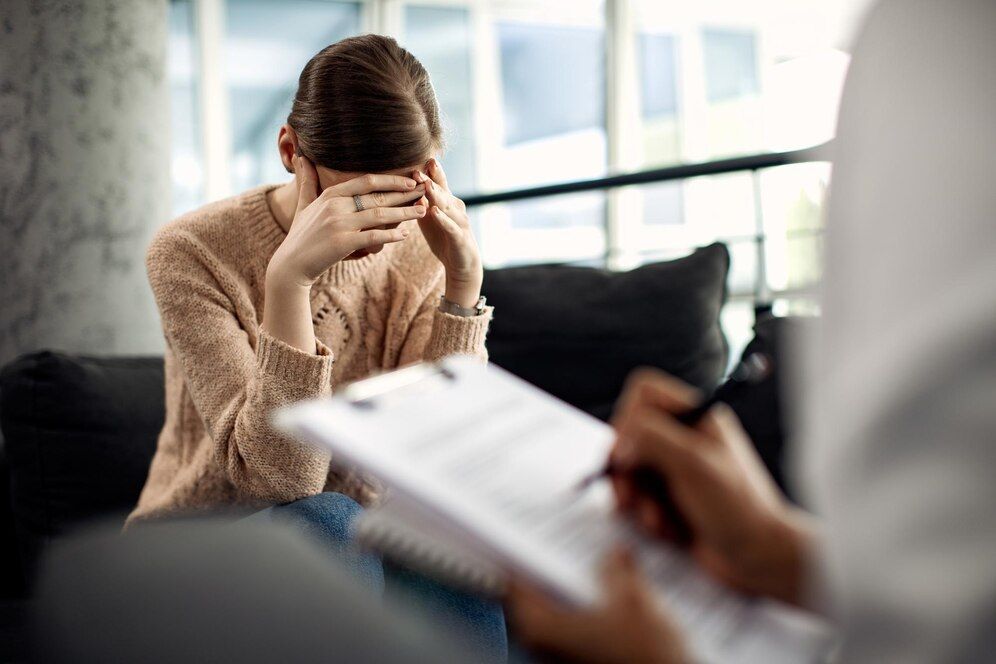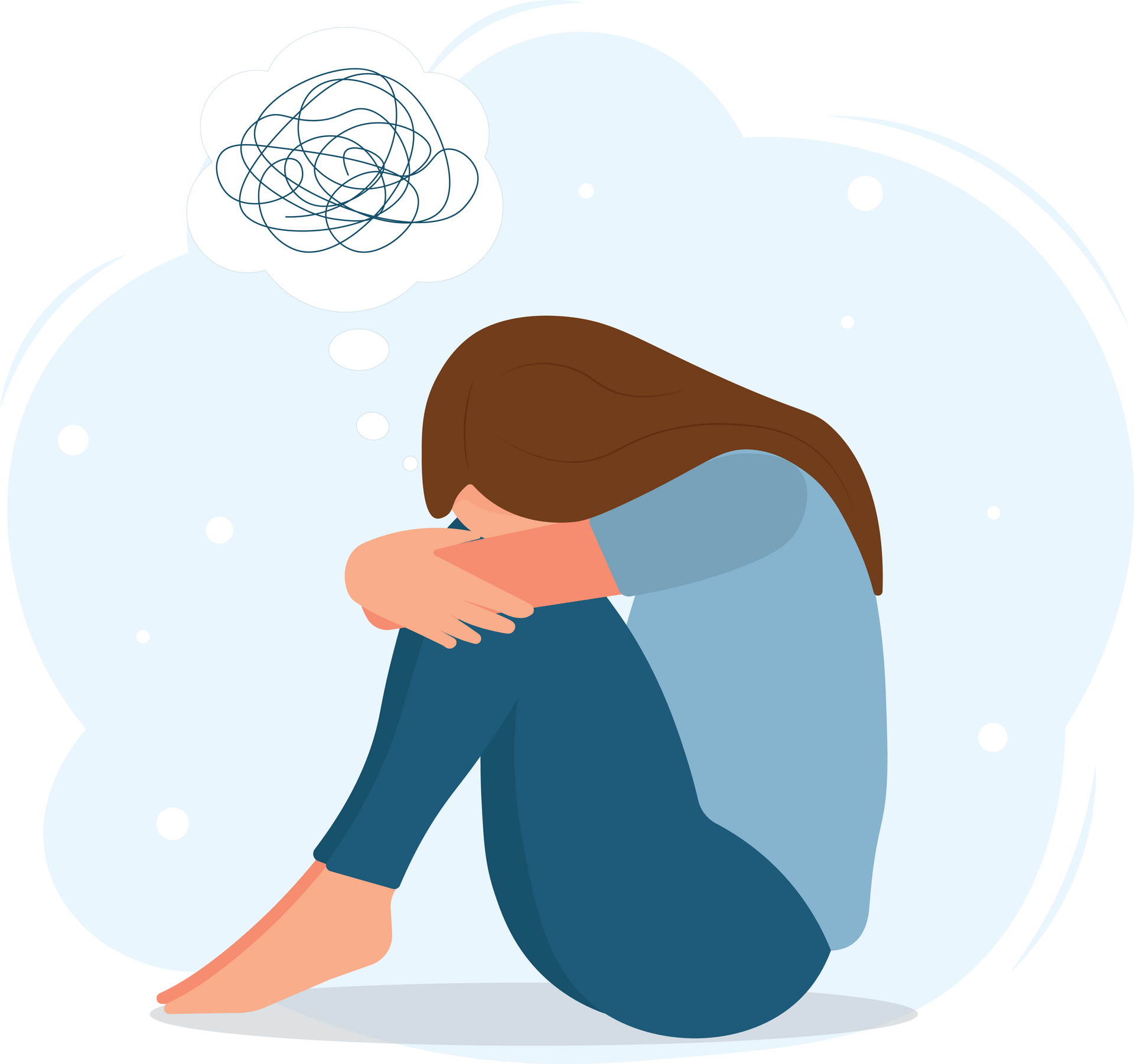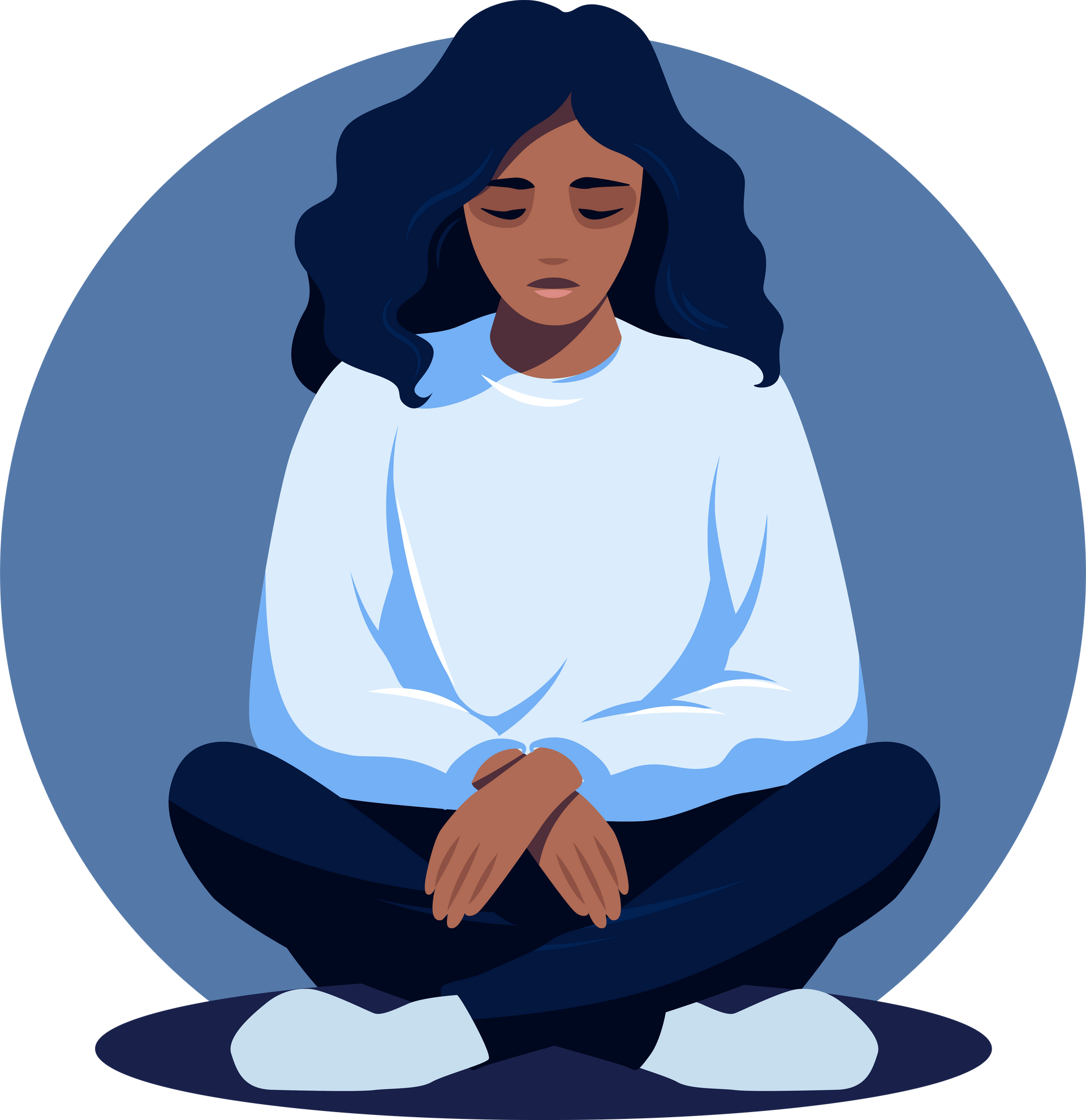Depression and Anxiety Treatment at Modern Psychiatry
You Don't Have to Feel This Way Forever
If you're reading this, chances are you've been struggling for a while. Maybe it started as just feeling "off" or more worried than usual, but now it feels like a heavy blanket you can't shake off. Depression and anxiety often show up together, creating this exhausting cycle where you feel sad and hopeless, then anxious about feeling that way, then guilty for not being able to "snap out of it."
Here's what we want you to know right away: what you're experiencing is real, it's not your fault, and most importantly, it can get better. At
Modern Psychiatry, we've helped thousands of people find their way back to feeling like themselves again, and we're here to help you too.
When Anxiety and Depression Take Over
Depression isn't just feeling sad sometimes. It's that persistent emptiness where things you used to enjoy feel pointless, getting out of bed feels impossible, and your brain keeps telling you things will never get better. You might feel exhausted even when you haven't done anything, or find yourself crying without really knowing why.
Anxiety, on the other hand, is like having a smoke alarm that won't stop going off. Your mind races with "what if" scenarios, your heart pounds over things that might not even happen, and you feel this constant sense of dread. You might avoid situations that make you nervous, only to feel anxious about avoiding them.
When you have both, it can feel like you're stuck between wanting to hide from the world and worrying constantly about everything in it. Some days the depression is stronger, making everything feel hopeless. Other days the anxiety takes over, making even simple decisions feel overwhelming.
Understanding What You're Going Through
These conditions affect everyone differently. Some people have panic attacks that come out of nowhere, while others experience a constant low-level worry that never really goes away. Depression might show up as sleeping too much or barely sleeping at all, losing your appetite or eating to cope with emotions.
You might notice physical symptoms too – headaches, stomachaches, muscle tension, or feeling tired all the time. Many people don't realize that depression and anxiety can actually cause real physical pain and exhaustion.
It's also common to feel frustrated with yourself, especially when well-meaning friends and family suggest you just "think positive" or "try yoga." While those things can be helpful additions to treatment, depression and anxiety are medical conditions that often need professional support to improve.
How We Approach Treatment
At Modern Psychiatry, we know that no two people experience depression and anxiety exactly the same way, so your treatment plan should be just as unique. We start by really listening to your story – what's been happening, how long you've been struggling, and what your goals are for feeling better.
Treatment often includes medication options that can help rebalance brain chemistry and reduce symptoms. There are many different types of antidepressants and anti-anxiety medications, and we'll work together to find what works best for you with the fewest side effects.
We also focus on practical strategies you can use in your daily life. This might include techniques for managing anxious thoughts, ways to gradually increase activities that bring you joy, or tools for improving sleep and managing stress.
Many of our patients find that a combination approach works best – medication to help stabilize mood and reduce anxiety, combined with therapy techniques and lifestyle changes that support long-term wellness.
What Your Treatment Journey Might Look Like
Your first visit will be a thorough conversation about what you've been experiencing. We'll ask about your symptoms, your medical history, and how depression and anxiety are affecting your work, relationships, and daily life. This isn't about judging you or minimizing your experiences – it's about understanding exactly what's going on so we can help.
If we decide medication might be helpful, we'll start with a low dose and check in regularly to see how you're doing. Some people start feeling better within a few weeks, while others need a few months to find the right medication and dose. Everyone's timeline is different, and that's completely normal.
We'll also talk about other things that can support your mental health, like sleep habits, exercise that doesn't feel overwhelming, and ways to manage stress. Small changes can make a big difference when you're ready for them.
Flexible Care Options
We understand that when you're dealing with depression and anxiety, even simple tasks like driving to appointments can feel difficult. That's why we offer both in-person and telehealth options. If we have a physical location in your state, you can choose to meet with us in person or virtually, depending on what feels most comfortable for you.
For states where we don't have physical offices, we provide complete psychiatric care through secure telehealth appointments. Many of our patients actually prefer virtual visits because they can meet with us from the comfort of their own home without the stress of traveling or sitting in a waiting room.
Moving Forward
Recovery from depression and anxiety isn't always a straight line. Some days will be better than others, and that's part of the process. Our goal is to help you build a toolkit of strategies and treatments that work for your specific situation, so you can handle the ups and downs with more confidence.
Frequently Asked Questions
How do I know if what I'm feeling is serious enough to need professional help?
If your symptoms are interfering with your work, relationships, or daily activities for more than a few weeks, it's worth talking to someone. You don't need to be in crisis to deserve support. Many people wait longer than they need to because they think their problems aren't "bad enough," but early treatment often leads to better outcomes.
Will antidepressants change my personality?
Good psychiatric medications should help you feel more like yourself, not different. If you feel like a medication is changing your personality in ways you don't like, that's important information to share with your doctor so adjustments can be made.
How long will I need to be on medication?
This varies greatly from person to person. Some people benefit from medication for a few months during a difficult period, while others find long-term treatment helpful. We'll regularly review how you're doing and make decisions together about your treatment plan.
What if I've tried antidepressants before and they didn't work?
There are many different types of antidepressants, and what doesn't work for one person might be very effective for another. We can also explore combination treatments or different approaches. Having tried something before that didn't work doesn't mean you're out of options.
Can therapy alone help, or do I definitely need medication?
Both therapy and medication can be effective for depression and anxiety. Some people do well with one approach, while others benefit from combining both. We'll work together to figure out what makes the most sense for your specific situation and preferences.
Getting Help Is a Sign of Strength, Not Weakness.
Contact Modern Psychiatry today to take the first step toward feeling better.





